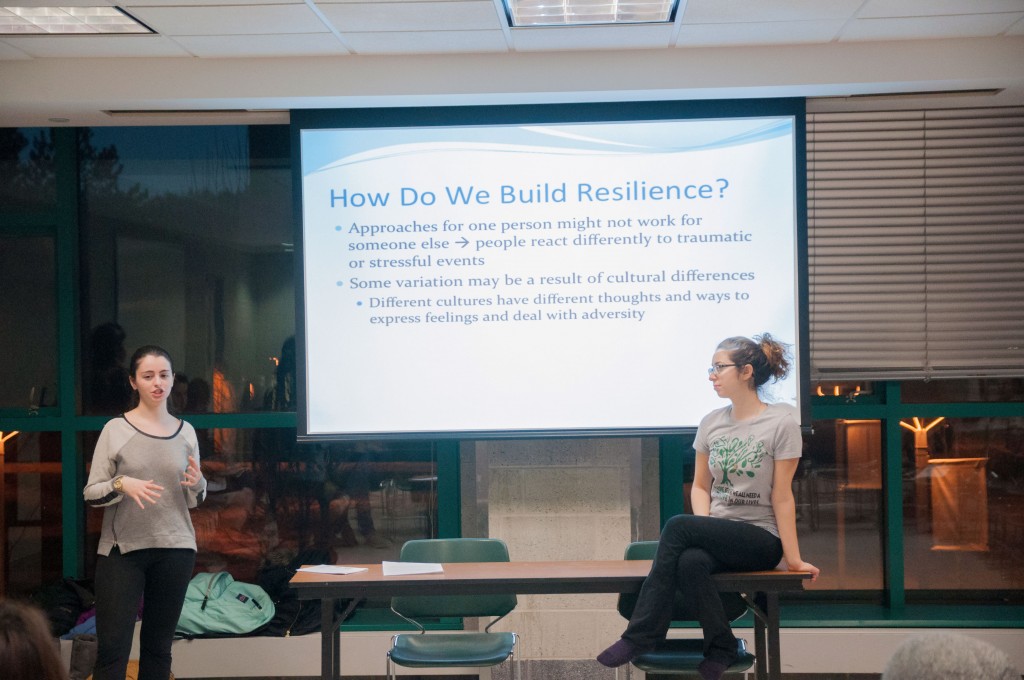
There are many causes of stress for college students, and on Sunday the Binghamton University Counseling Center (UCC) hosted a workshop on how to remain resilient in the face of all of them.
The workshop, titled “Resiliency,” was held as part of an ongoing effort by the UCC to certify students as Mental Health Advocates (MHA). The MHA program began last spring with the goal of fostering a more supportive, stigma-free campus. To receive the certification, attendees must go to five sessions.
As counseling center interns, BU students Hadas Bernstein, Allison Dashow and Amanda Niedfeld held this session in University Union to educate students about resiliency, which is the ability to recover readily from significant sources of stress such as illness, depression, trauma and other forms of adversity. The “Resiliency” workshop fulfilled the life skills category of the MHA certificate series.
The interns, also known as Mental Health Outreach Peer Educators (M-HOPE), encouraged students to share significant events in their life in which they successfully handled their daily life obstacles. Bernstein, a senior majoring in psychology, said students could learn from their past and become stronger people. By sharing their own struggles, other students could benefit by knowing that they are not alone.
“Always take care of yourself, because that is your first priority, and always reflect on your past,” Bernstein said. “Reflecting on your past can help you learn about what strategies for building resilience work for you and try to figure out how you can respond effectively to difficult situations or what you can change to make you a better and stronger person.”
For Rachel Moshman, a workshop attendee and a junior majoring in integrative neuroscience, transitioning into college was one of these difficult situations.
“It was a major change and I felt really lost,” Moshman said. “Any kind of drastic change is really stressful for me. My brain feels like it won’t work if there’s a change in the circumstances. It took me around a year to not hate Binghamton. I’m happier and better now though and looking back at my first year here at Binghamton, I didn’t know what it meant to work for my classes.”
Dashow, a junior majoring in psychology, and Niedfeld, a senior majoring in psychology, encouraged students to be more resilient in hard times by being proactive and using resources offered on campus such as self-help and support groups, books and the counseling center.
“You as students should look at a problem and take it head on,” Dashow said. “The first thought you should try to train your mind to think is, how do I need to approach this? How can I realistically accomplish what I need to and what is this situation trying to teach me?”
Although the workshop focused on teaching students how to approach stressful situations, the interns also stressed that resiliency depends on one’s surroundings. The skill set that students develop is uniquely shaped by their past and the support system provided by friends and family.
“Family members, friends and support groups that people have usually have a strong impact on how resilient they are,” Niedfeld said. “The approaches for one person might not work for someone else, because each culture or upbringing is different.”


